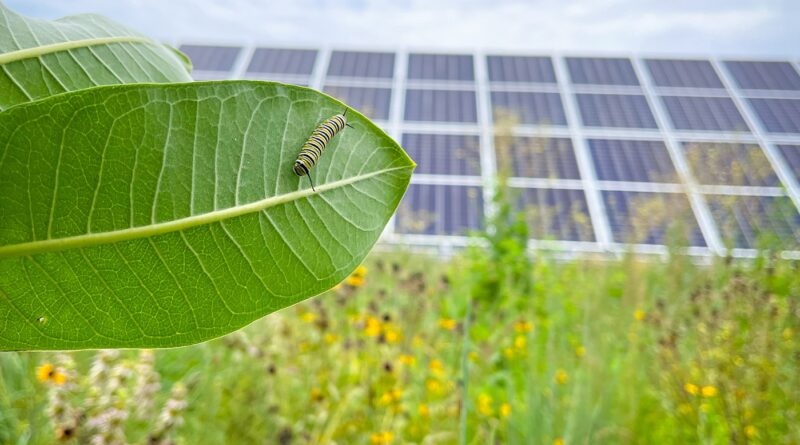January 18 NEC Energy News
¶ “Agrivoltaics In Action: Evidence Shows Solar Panels Nurture Habitats And Farms, Too” • An organized effort to stop rural solar development is still sputtering along, but the case for converting marginal farmlands into clean energy powerhouses is getting stronger. The key element is the emerging science of agrivoltaics, which nurtures farms. [CleanTechnica]

¶ “The EU Got Its First Climate Report Card. It’s Not Good” • Now is not the time for Green Deal fatigue. In fact, Europe must accelerate its efforts. That’s the blunt conclusion in an important, first-of-its-kind assessment from the EU’s top climate science advisory body. Another conclusion is that nuclear energy is not as useful as other types. [POLITICO.eu]
¶ “Shell Faces Calls For Climate Action By Institutional Investors” • Oil companies are used to individual shareholders pressing their boards of directors to reduce greenhouse gas emissions, but this year, 27 institutional investors are challenging the board of directors of Shell to align its activities with the goals of the 2015 Paris climate accords. [CleanTechnica]
¶ “Montana Supreme Court Upholds Climate Ruling That Said Emissions Can’t Be Ignored” • Montana’s Supreme Court has rejected an attempt by the state’s Republican governor to block a landmark climate ruling that said regulators must consider the effects of greenhouse gas emissions when issuing permits for fossil fuel development. [ABC News]

¶ “A Cash Crop That Never Runs Out” • The 7,000-acre Ferrell Ranch in Beaumont, Kansas, has 50 wind turbines. The ranch had survived years when drought dried up income by relying on oil revenues, but today the wind turbines are providing a reliable cash crop for the ranch. Yale Climate Connections spoke with Pete Ferrell. [Yale Climate Connections]
¶ “A Critical Climate Goal May Be ‘Deader Than A Doornail,’ And Scientists Are Bitterly Divided Over It” • Ever since countries agreed in 2015 to try to restrict global warming to 1.5°C, that number has been our goal. Some prominent scientists argue we can’t meet it, and it’s irresponsible to act like we can. Others say that is wrong and even dangerous. [CNN]
For more news, please visit geoharvey – Daily News about Energy and Climate Change.
